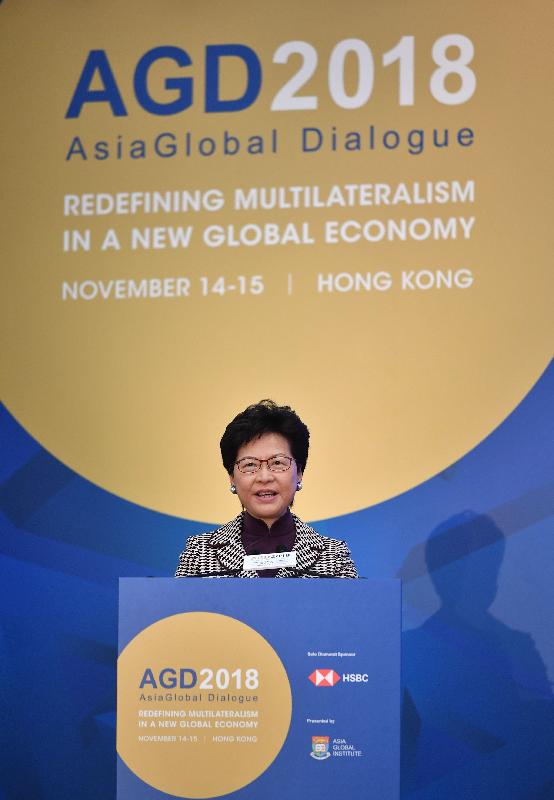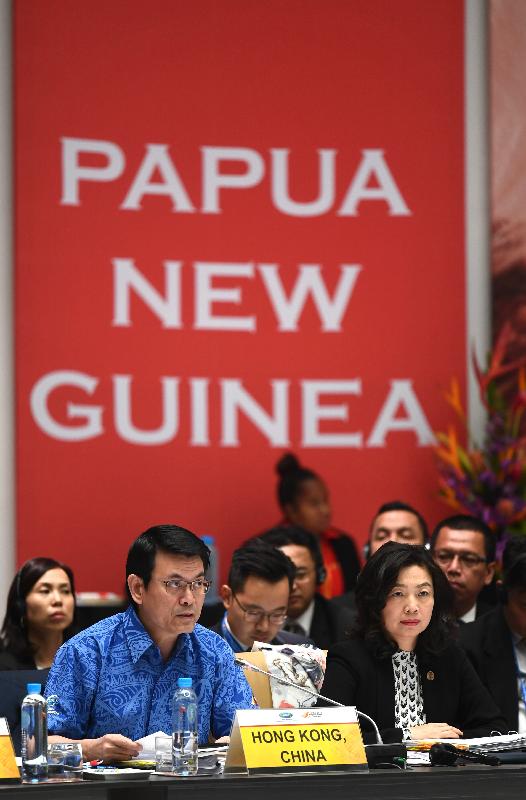Legislative Council Kowloon West geographical constituency by-election poll cards mailed to some 490 000 electors
The Legislative Council Kowloon West geographical constituency by-election will be held on November 25. The Registration and Electoral Office (REO) today (November 15) reminded electors that they must carry the original of their Hong Kong identity card to the designated polling station to vote.
The REO has mailed poll cards to about 490 000 registered electors of the Kowloon West geographical constituency to inform them of where they should cast their votes on the polling day.
"Electors may only cast their votes at the designated polling station as specified on their poll card. They are advised to note the address of the designated polling station on their poll card to ensure that they go to the correct polling station," a spokesman for the REO said.
"Electors can log in to the Online Voter Information Enquiry System (www.voterinfo.gov.hk) if they have not yet received their poll card to check whether they are registered electors of the Kowloon West geographical constituency and their designated polling station. They can also call the election hotline 2891 1001 for enquiries," he said.
In addition to the poll card, the electoral mail sent by the REO to each elector of the Kowloon West geographical constituency also includes an introductory leaflet on the candidates, a map indicating the location of the designated polling station, a voting procedure guide and a publicity leaflet on clean elections.
"Electors must carry the original of their Hong Kong identity card or other specified alternative documents to the designated polling station to collect their ballot papers to cast their votes," the spokesman said.
"Voting is very simple. Electors must use the chop provided by the polling stations to stamp the ballot paper with a tick in the circle opposite the name of the chosen candidate. Electors should then fold the ballot paper once according to the pre-folding by polling staff to conceal the mark before putting the ballot paper into the ballot box."
A total of 73 ordinary polling stations in the Kowloon West geographical constituency and a maximum of 22 dedicated polling stations will be open on the polling day for about 490 000 electors of the Kowloon West geographical constituency listed on the 2018 Final Register to cast their votes. The polling hours for the ordinary polling stations and the dedicated polling station set up at Cheung Sha Wan Police Station will be from 7.30am to 10.30pm. For the dedicated polling stations set up at penal institutions, for security reasons, the polling hours will be from 9am to 4pm.
Once the poll closes, all ordinary polling stations will be converted into counting stations for counting of votes. The counting stations will be open to the public once the conversion has been completed. Members of the public will be able to watch the counting process at designated areas inside the counting stations.
A media centre will be set up at Tiu Keng Leng Sports Centre, 2 Chui Ling Road, Tseung Kwan O, where the election results will be announced by the Returning Officer. A public gallery will be set up for members of the public to watch the announcement of results at the media centre. In view of the limited seating capacity, admission to the public gallery will be arranged on a first-come, first-served basis from 11pm on November 25. To facilitate admission control, members of the public admitted to the venue will be required to wear a wristband provided by the REO for identification purposes.
Measures have been taken by the REO to enable electors with special needs to exercise their right to vote. "In this by-election, over 90 per cent of the polling stations are accessible to electors with mobility difficulty or those who use wheelchairs. Where possible, the REO will install temporary ramps at polling stations to assist them," the spokesman said.
The location map enclosed with the poll card specifies clearly whether the designated polling station is accessible to electors who are wheelchair users or have mobility difficulty.
"Electors with mobility difficulty or those who use wheelchairs may apply to the REO by November 20 (next Tuesday) (i.e. at least five days before the polling day) through the election hotline (2891 1001), fax (2891 1180) or email (reoenq@reo.gov.hk) for re-allocation to another polling station in case they have been allocated to a polling station inaccessible to them. If possible, the REO will also arrange for rehab buses to take them to and from polling stations upon request," he added.
On the other hand, the Electoral Affairs Commission encourages candidates to provide a text version of their introduction to enable electors with visual impairment to understand the content using software aids. The text versions provided by candidates have been uploaded to the election website (www.elections.gov.hk). Electors with visual impairment may also listen to the candidates' introductions by calling the dedicated telephone line 2893 3762. Braille templates will be provided at polling stations to assist electors with visual impairment to vote.
To help electors who are not familiar with Chinese and English cast their votes, guides on the voting procedure in seven ethnic minority languages (Bahasa Indonesia, Tagalog, Thai, Hindi, Nepali, Urdu and Punjabi), Japanese and Korean will be available at every polling station. Information on the by-election in these languages has also been uploaded to the election website.
The REO has also made arrangements with the Centre for Harmony and Enhancement of Ethnic Minority Residents run by the Hong Kong Christian Service to provide a telephone simultaneous interpretation service with the seven ethnic minority languages to help electors who are not familiar with Chinese and English make enquiries to the REO on election matters from November 12 to 16 and from November 19 to the polling day.
A pictorial guide showing the voting procedure will also be provided at polling stations to help electors with hearing or communication problems and electors who are not familiar with Chinese and English to understand the voting procedure.
Information about the by-election is available on the election website (www.elections.gov.hk). For enquiries, please call the election hotline on 2891 1001.

